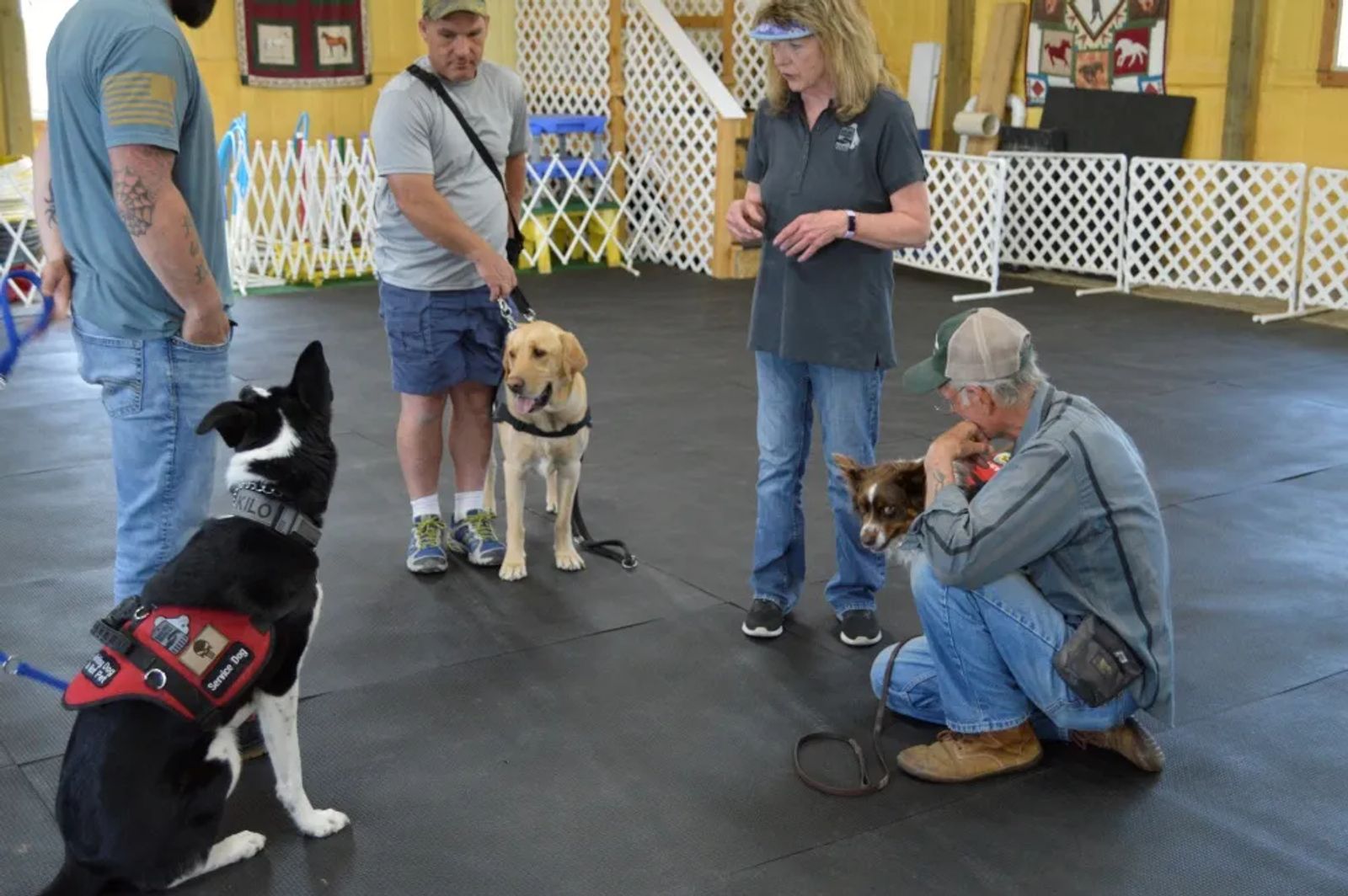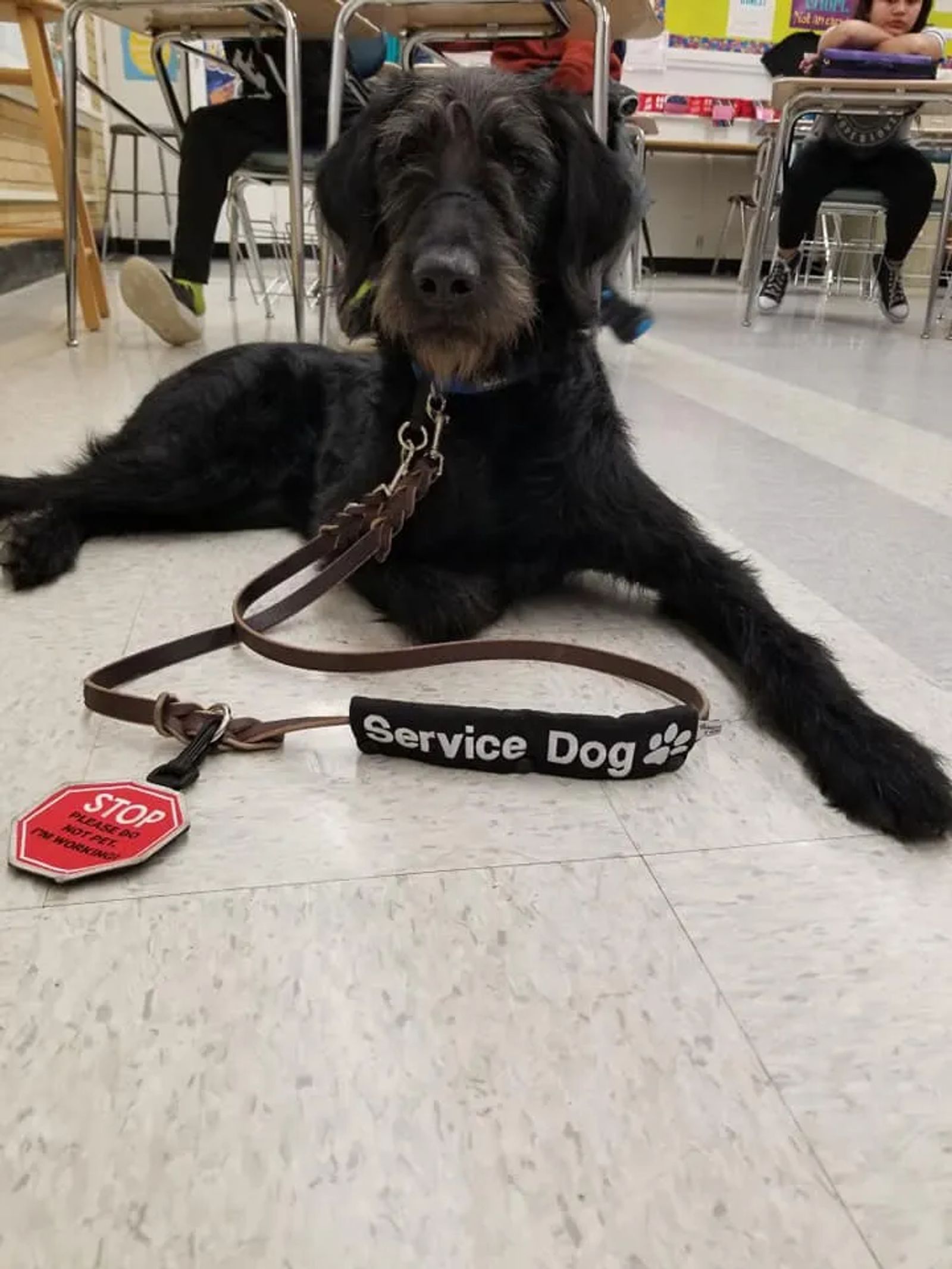
More than Man’s Best Friend
November 2020 | by ashlynn reynolds-dyk
As we honor and remember those who have served our country, we sometimes forget about our four-legged heroes. The hero dogs of 9-11, for example, worked as trained search and rescue dogs, with many specifically searching for signs of life in debris and others searching for cadavers. Others worked as therapy dogs for our first responders and emergency personnel at Ground Zero; these dogs were brought in to offer light and life amid so much death and darkness. Other dogs worked more informal positions as emotional support dogs for their owners if/when the owners came home from working a Ground Zero shift. Many dogs today continue to offer this kind of emotional support for individuals by providing companionship.
As we approach Veteran’s Day, it seems the perfect time to take an up-close look at what service dogs truly are and what a local, Billings-based organization is doing to support veterans through the use of service dogs and companion dogs.
There is a great deal of clinical research, and it is widely accepted, that animals help people in many ways. One such person includes DeeDe Baker’s husband, who returned home from Operation Iraqi Freedom with hidden injuries, including PTSD (Post-Traumatic Stress Disorder) and TBI (Traumatic Brain Injury). After seeing the relief their dogs brought her veteran husband and learning about how many veterans (and their families) are impacted by PTSD (11-20% of OIF/OEF Veterans have PTSD in a given year), Baker founded Dog Tag Buddies in 2015. This unique and praiseworthy nonprofit organization partners rescue dogs with veterans suffering from hidden injuries, improving the quality of life—and often saving both lives—for dog and owner. They also educate the public about these differences while advocating for service and companion dogs and their owners.
There are three types of assistance animals: service, therapy, and emotional support. Differentiating between these types of animals and knowing what is or is not covered under the Americans with Disabilities Act (ADA) is an important part of responsible pet ownership and being an informed citizen. Below is an overview offering the definition and purpose (along with what that means for access in public places) for each type of assistance animal as per the ADA and Dog Tag Buddies Founder and CEO, DeeDe Baker:
Emotional Support Animals:
- Any animal whose purpose is to “provide companionship, relieve loneliness, and sometimes help with depression, anxiety, and certain phobias, but do[es] not have special training to perform tasks that assist people with disabilities.”
- Included in the Fair Housing Act and the Air Carrier Access Act (which is currently under scrutiny due to abuse of the policy) but otherwise not allowed in any public places that do not usually allow pets.

Service Animals:
- A dog (and miniature horses who meet the ADA’s criteria) that is individually trained to do work or perform a task for a person with a disability; the work or task piece is the key attribute that makes a service dog, in fact, a service dog. (Note: “Making you feel better” is not a task).
- For veterans with PTSD, tasks can be things like detecting and alerting to an anxiety or panic attack before onset so the veteran can take steps to prevent or mitigate it. Providing a distraction or leading the veteran to an exit if they are dissociating; reminding them to take their medication; picking up dropped items, etc. Service dogs for PTSD and other mental injuries or illnesses are referred to as psychiatric service dogs.
- Other examples of service dogs include diabetic alert dogs, seizure alert dogs, and seeing-eye dogs.
- State and local governments, businesses, and nonprofit organizations that serve the public generally must allow service animals to accompany people with disabilities in all areas of the facility where the public is allowed.
Therapy Animals:
- Can include cats, dogs, equines, birds, and rabbits; these animals go with their owner to provide mental, emotional, and physical support to others, typically in schools, healthcare, and assisted living settings.
- These pets are evaluated on their ability to interact with a wide range of populations safely. Their handlers are trained in best practices to ensure effective interactions that support animal welfare. Therapy animal handlers may volunteer their time to visit with their animals in the community, or they may be practitioners who utilize the power of the human-animal bond in professional settings.
- No special rights of access, except in facilities where they are welcomed, may not enter businesses with “no pets” policies or accompany their handler in the cabin of an airplane regardless of their therapy animal designation.
Regarding service dogs and responsible pet ownership, Baker explains that while it may be appealing to take your dog everywhere with you, responsible pet owners should not put a vest on or print a certificate from a random website for a dog not trained as a service dog. "Service dogs are carefully temperament tested to ensure they meet the rigors of the job… they undergo hundreds of hours of training to be able to perform their duties effectively, often costing thousands of dollars," she explains. Taking dogs who are not trained as service dogs can negatively affect said dog, service dogs, and people with disabilities. People with disabilities that have true service dogs have to worry about their dog being attacked by an untrained dog, for example. Untrained dogs that have caused harm are now causing legitimate teams to fall under scrutiny.
So, when adopting a pet as an assistance animal, be sure to carefully and responsibly consider what you need, what you expect from the pet, and if the pet has the right temperament for your needs and expectations.
To learn more about Dog Tag Buddies, you can visit their website: https://dogtagbuddies.org.
Other resources include:
Americans With Disabilities Act:
- http://www.ada.gov/
- http://www.ada.gov/service_animals_2010.htm
- http://adata.org/factsheet/service-animals
- http://www.ada.gov/svcanimb.htm
Fair Housing Act:
Air Carrier Access Act:
Yellowstone Valley Animal Shelter:
Veteran Resources:
Side Note:
If you shop on Amazon, you can easily help Dog Tag Buddies at NO additional cost to you by simply placing your order through smile.amazon.com and selecting Dog Tag Buddies as your donation recipient.
Originally printed in the November 2020 issue of Simply Local Magazine
Never miss an issue, check out SLM's digital editions here!





